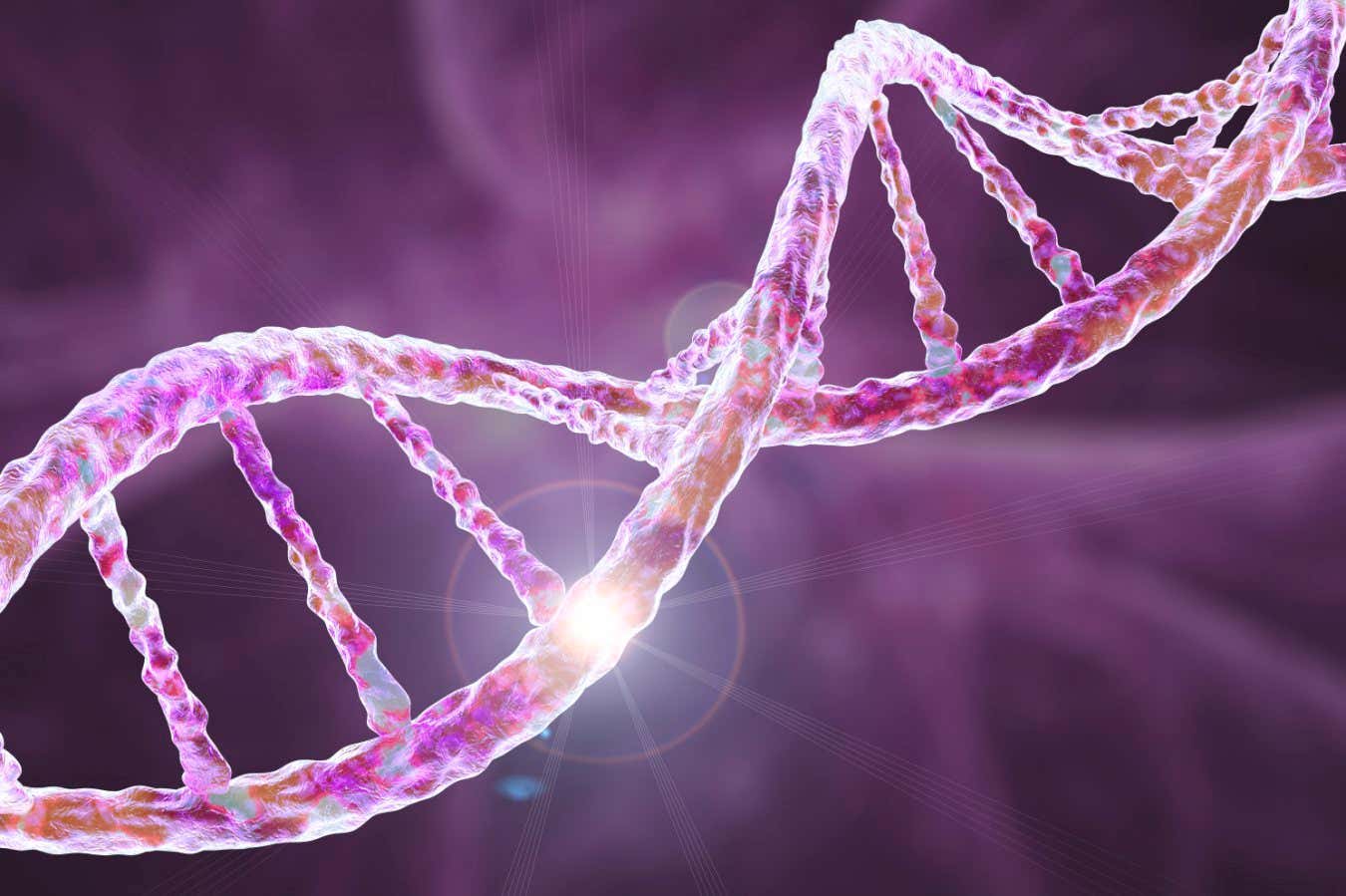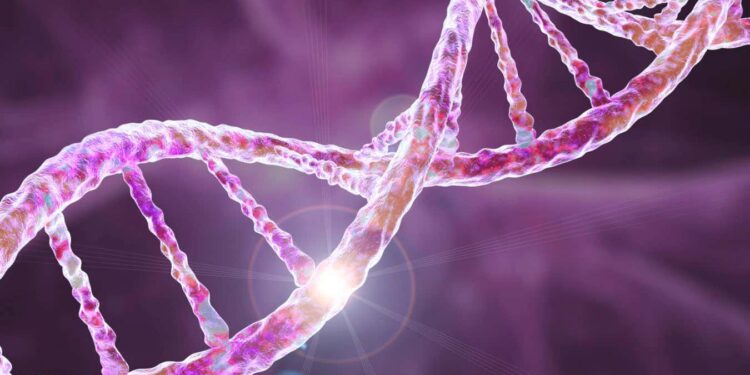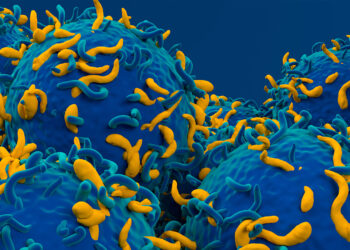
People with fibromyalgia have different genetic variants than those without it
KATERYNA KON/SCIENCE PHOTO LIBRARY/Getty Images
We are starting to unpick the genetics of fibromyalgia, a poorly understood condition that causes chronic pain all over the body. The results of two studies – with millions of participants between them – support the idea that dysfunction in the central nervous system is a major factor in fibromyalgia. However, previous research suggests alternative mechanisms, such as autoimmunity, are involved, hinting at the condition’s multi-causal complexity.
Fibromyalgia is thought to affect 2 to 3 per cent of people. Its causes are unclear, which makes it difficult to treat, but a leading idea is that people with fibromyalgia have developed changes in the way their central nervous system processes pain messages, possibly due to an infection or changes to the gut microbiome.
To understand the role of genetics, two sets of researchers have carried out genome-wide association studies to identify genetic variants that are more common in people with fibromyalgia. Both studies focused only on variations to single letters in the genome, rather than other variants, such as large-scale deletions, which can have a more dramatic effect.
The first study – led by Michael Wainberg at Mount Sinai Hospital in Toronto, Canada – pulled together cohorts from multiple countries, including the US, the UK and Finland. The team amassed a total of 54,629 people with fibromyalgia, most of whom were of European ancestry, and 2,509,126 people without the condition. From this, the researchers identified 26 variants in the genome associated with a higher fibromyalgia risk.
Joel Gelernter at Yale School of Medicine led the second study, which used datasets from the US and UK. Altogether, Gelernter and his colleagues looked at 85,139 people with fibromyalgia and 1,642,433 people without it, who had a mix of European, Latin American and African ancestries. They found 10 variants associated with fibromyalgia in the European ancestry group, one in the African ancestry group and 12 that were cross-ancestry.
Wainberg and Gelernter declined to be interviewed because their studies haven’t yet been peer-reviewed.
“Both studies, in terms of sample size, are really great,” says Cindy Boer at Erasmus Medical Center in Rotterdam, the Netherlands.
In Wainberg and his team’s study, the strongest association was with a variant in a gene called huntingtin, which can cause the neurodegenerative condition Huntington’s disease. However, this condition is caused by a repeated genetic sequence within huntingtin, leading to the production of a defective protein. In contrast, the variant linked to fibromyalgia is a single-letter change in a different part of the gene.
But this doesn’t mean that this mutation alone causes fibromyalgia, says Boer. “It needs to be combined with other risk factors or other genetics.” There are probably thousands of variants at work, plus external influences, such as air pollution exposure, she says. Identifying all these variants would require even larger studies.
Despite these shortcomings, the variants implicated in Wainberg and his team’s study were all in genes that have roles in neurons, suggesting that many of the key mechanisms of fibromyalgia occur in the brain. Likewise, Gelernter and his team’s study identified variants that have previously been linked to pain and brain-related issues, such as post-traumatic stress disorder and depression.
These results solidify an existing hypothesis about fibromyalgia: “there’s something going on in brain tissues”, says Boer. Follow-up work on the implicated variants could identify key cell types, brain regions and biochemical pathways, which could ultimately be targeted for treatments. These are probably many years away, Boer warns – unless it turns out that a known mechanism, targeted by an existing drug, is implicated. Existing interventions focus on exercise, talking therapies and antidepressants, with mixed success.
However, mechanisms outside of genetics may also be at work. David Andersson at King’s College London and his team have previously found evidence that fibromyalgia is an autoimmune condition. In 2021, they showed that when antibodies from people with fibromyalgia were injected into mice, they developed painful hypersensitivity and muscle weakness. In September this year, the researchers showed that such mice had abnormal responses to sensations, with nerves that normally respond to light touch starting to respond to cold as well. This mirrors how people with fibromyalgia often feel pain in response to stimuli that other people don’t find painful, such as slightly cold temperatures.
“I am very confident in the conclusions from our own work on fibromyalgia, and certain that our published work will be the inflection point marking when the field changed focus from the central nervous system to autoantibodies [that target the body’s own tissues] and peripheral neuronal [neurons that lie outside of the brain and spinal cord] mechanisms,” says Andersson.
But Boer stresses that the latest studies don’t invalidate that. The researchers set a high bar for statistical significance, so while we can be confident about the variants they identified, and the bodily mechanisms they implicate, they will have missed many more, she says. Also, Gelernter and his team’s study identified some variants that have been associated with autoimmune responses.
Studies like these are “first steps”, says Boer, but they open the possibility of understanding the roots of fibromyalgia. “What are the pathways?” she asks. “And is there something in there that we can target?”
Topics:
Source link : https://www.newscientist.com/article/2500797-unpicking-the-genetics-of-fibromyalgia-sheds-new-light-on-its-causes/?utm_campaign=RSS%7CNSNS&utm_source=NSNS&utm_medium=RSS&utm_content=home
Author :
Publish date : 2025-10-24 11:00:00
Copyright for syndicated content belongs to the linked Source.














